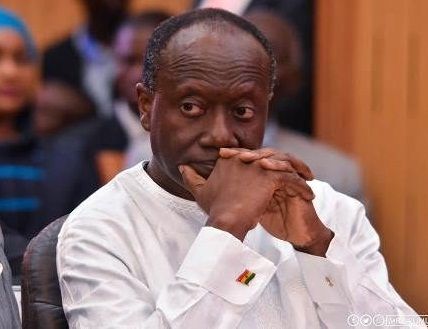Ghana aims to issue longer-dated hard currency bonds in its next bond sale, Finance Minister, Mr. Ken Ofori-Atta said last week Wednesday, adding that he expects the cedi currency to strengthen in the coming months.
He also confirmed that Ghana has no plans to extend its cooperation with the Fund beyond its annual Article 4 reviews.
The world’s second-largest cocoa producer has just completed a US$3billion bond sale with maturities of seven, 12 and 31 years. The order books exceeded US$21billion – the highest ever for a sub-Saharan African bond sale – and nearly half of that was for the longest-dated issue, according to the finance ministry.
“We had a clear indication from investors that they are very interested in our longer-dated maturities,” Mr. Ofori-Atta told Reuters following an investor roadshow.
“We need longer-term financing for our infrastructure needs…and we will naturally keep extending the curve,” he said, adding that he had been approached by a number of investors about issuing a 50-year bond.
President Nana Akufo-Addo said in September that Ghana could issue a 100-year US$50billion bond as part of a long-term industrialisation plan, although analysts expressed doubt that Ghana has the capacity to undertake such a transaction.
Mr. Ofori-Atta said that he did not expect to come back to the market in 2019, and that a 2020 bond sale would have to be timed to take into account the general election scheduled for next year.
However, the finance ministry is keen on returning to markets to raise funds, and also for liability management – which accounted for a third of the bonds sold this week.
According to the IMF, Ghana is at high risk of external debt distress and had a debt-to-GDP ratio of 67.1 percent in 2018.
Mr. Ofori-Atta also said he hopes to shift the ratio of sovereign cedi to hard-currency debt from the current 55/45 percent to 50-50 in order to reduce the pressure of debt-servicing costs.
“It’s the domestic bonds which are the real culprit here,” he said, adding that debt-servicing costs will continue to rise but at a slower pace.
Cedi sovereign bonds maturing in 2026 currently yield 20.1 percent, while the seven-year dollar-bond sold last week Wednesday has a coupon of 7.875 percent.
Mr. Ofori-Atta pointed to a mix of factors for the recent falls in the cedi, one of the world’s weakest-performing currencies in 2019. He cited the prospect of Ghana exiting its IMF programme unsettling markets, technical issues at the central bank, and policymakers intervening less to preserve reserves.
But he said a turnaround is underway.
“It could strengthen a bit more,” he said. “There’s still a certain amount of weakness in our current account structure; we are too dependent on imports, and we need to put policies in place that drive-up exports, and then we will find the real value of the currency.”S
Ghana, which also exports gold and oil, is in the final year of a US$918million IMF credit programme due to expire on April 4.
The cedi lost as much as 18 percent of its value since the start of the year in mid-March, before clawing back some of its losses. It is currently down 11 percent.
Some analysts have blamed a surprise central bank rate cut to 16 percent from 17 percent in January for the weakness.
Mr. Ofori-Atta said that in his view rates should stay where they are when policymakers meet next week.
“So much has gone on with regard to the bond flotation, exciting the IMF. For me, I would say let’s leave it as is; let’s all absorb these new variables and see what we can do.”
Source: B&FT Online





